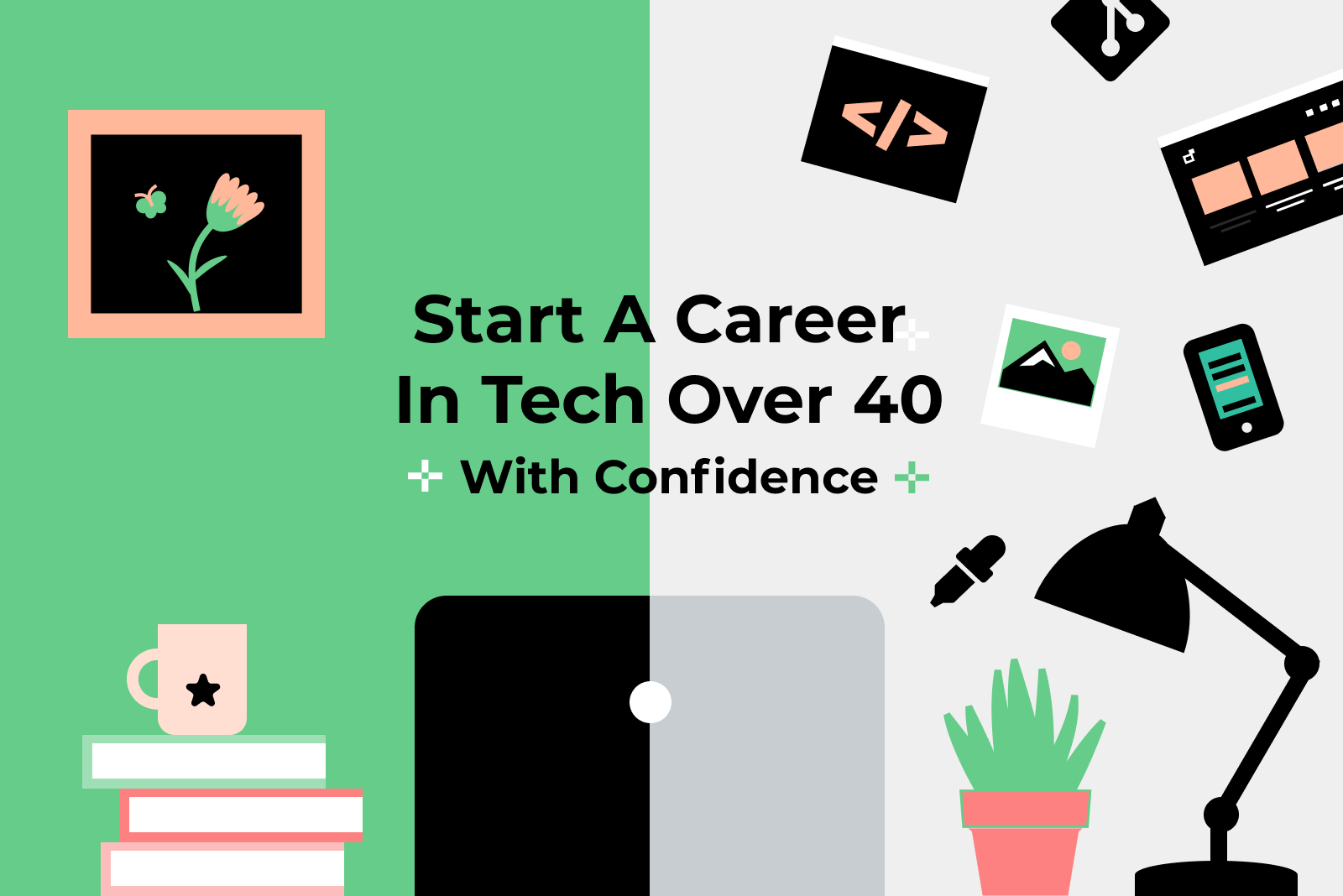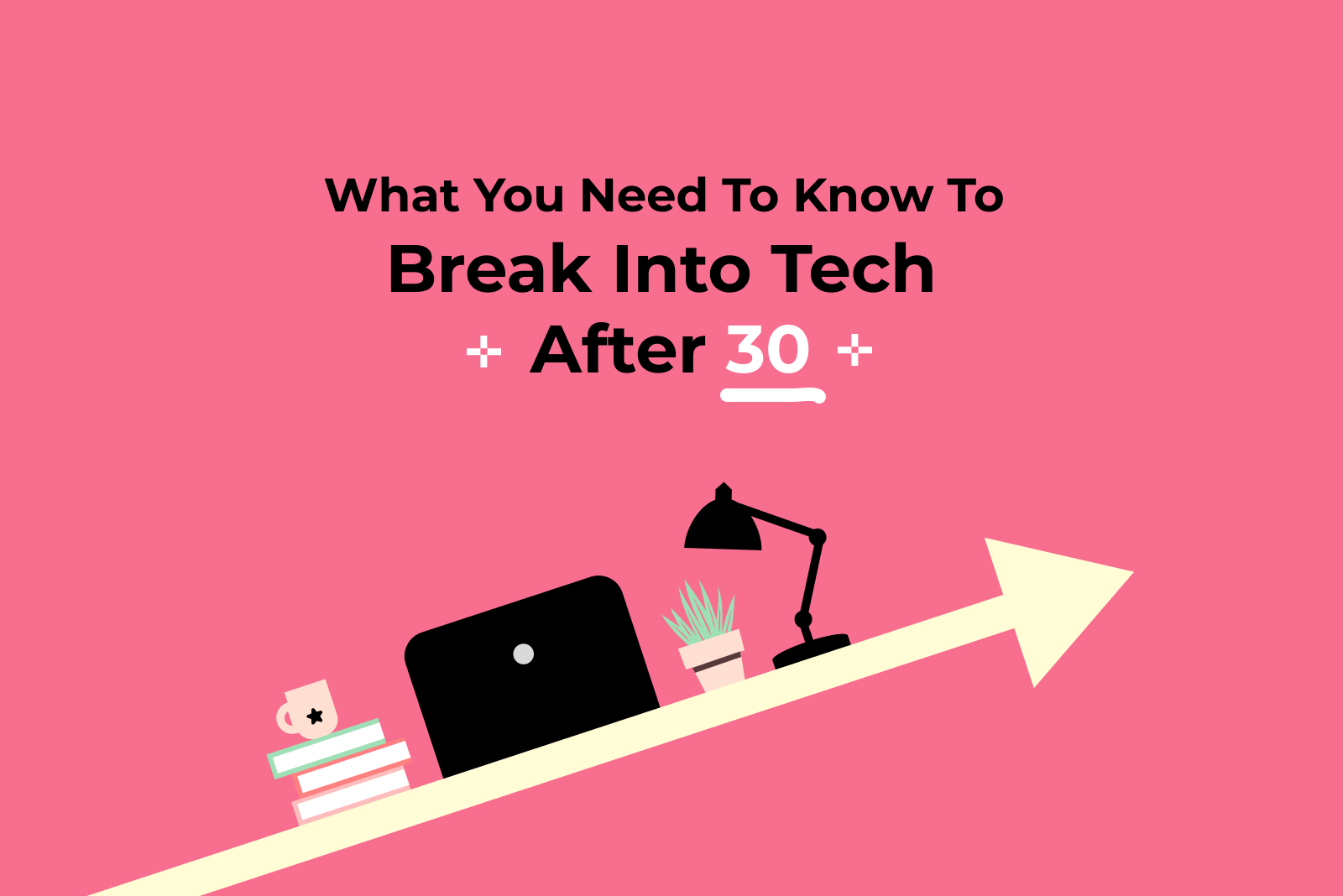Changing Careers over 50? 4 Reasons to Do It Today!
Too old to make a career change? Try just old enough.


People interested in changing up their professional lives are often given pause by one factor: if they’re too old to make a career change. Whether people are in their 20’s, 40’s, 50’s, 60’s, or beyond, there’s a lot of angst around the idea of it being “too late” to make a change. But the simple fact is that it’s never too late—if you’re alive, you’ve got time and a chance to transition your career into work that better supports you financially, satisfies you creatively, fits into your life schedule-wise, or whatever your specific needs may be.
However, if you’re 40 or older it’s easy to think this doesn’t apply to you. As someone who changed careers at the age of 40 myself, I can tell you that mid-life career change is not only possible, it’s actually an ideal time to make that change. In order to give you a clear picture of why, I spoke with other professionals who made career changes later in life and broke down the key reasons why older people are uniquely positioned to do so.
Career Change Can Be a Vehicle for Mid-Life Flexibility
Younger workers are either just starting out in their career path or establishing themselves in their career field, and so it’s natural for people in their 20’s or 30’s to be fully immersed in work. However, things can start to change by age 40 and beyond. For those of us older adults who are looking at middle age, we often find ourselves facing a different set of responsibilities and personal needs. Whether we have kids that we’re caring for, our own aging parents who need help, or we’re simply so settled into our familiar work routine that we’re craving new challenges and ways to contribute to the world, many older workers are in a time of shifting focus and increased responsibilities.
Of course, there are only so many hours in a day, and if most of those hours are spent commuting to an office job, working at that job, and schlepping back home, there isn’t much time left to do anything else. This a challenge for anyone who works in a physical workplace, but it’s particularly limiting when you’re an older adult juggling the needs of so many different people. The good news is, work doesn’t have to be a limitation. One of the most ideal kinds of career transition for older workers is one that involves flexible work—it’s precisely that need for flexibility that turns middle age into a perfect time for making a career change. But what exactly does a flexible career look like, and how can you get there?
Flexible jobs range across a number of categories, with the amount of positions considered “flexible” continuing to grow in the U.S. According to the Bureau of Labor Statistics (BLS), in 2017 more than 16 percent of U.S. workers participated in flexible contract work as their primary job, which was a 56 percent increase over the previous 10 years. These jobs can vary from high paying part-time work as dental hygienists, registered nurses, and librarians, to freelance roles, many of which can be done remotely from your home or personal office. These freelance and remote positions include jobs like front end website developers, digital marketers, and copywriters. Of course, one of the hurdles to mid-life career change is the time it might take to learn the skills or get the credentials necessary for career reinvention—changing careers to something with a more flexible schedule sounds great, but not necessarily if a successful career change takes years of retraining.
While some new careers do require credentials like a bachelor’s degree in a subject you don’t have (and don’t necessarily want to spend the time picking up), there are plenty of flexible options whose skills can be learned in a matter of months or less. Getting versed in the basics of front end web development, for instance, can be completed in months, and HTML (one of the most fundamental web development skills) is learnable in weeks. With these timeframes in mind, it’s clear how artificial many constraints keeping people stuck in their current job really are. With the BLS citing median web developer pay at $67,990 a year, you can see that a minimal investment in time and training can pay dividends in a robust career that can be executed from your own home, adding precious time back to your schedule to care for your family, volunteer in a community garden, or write the novel you’ve been meaning to get to since you were in your 20’s.
It’s also worth noting that career change doesn’t always require a complete change of industry. Finding ways to work for yourself in an industry you’re already familiar with can be another gateway to flexibility and work-life balance (and one that comes with the bonus of transferable skills). Nicol Stolar-Peterson is a child custody evaluator and expert witness who jumped to her current role around the age of 40, after spending 11 and a half years working for Child Protective Services. Stolar-Peterson says that her former employer had the option to move her between offices within 50 miles of her home at will—which they did. “Two hours a day in a car and leaving my children to be raised in daycare was horrible,” Stolar-Peterson says. “Ironically, I was at an agency for child protection but I wasn’t set up to support my own family schedule and time.”
Stolar-Peterson eventually used the skills and experience she had to enter private practice, and now has the flexibility of being her own boss—something that not only allows her to spend more time with her own children, but also gave her space to develop a sideline career selling skincare products. “It’s something I do because it’s fun,” Stolar-Peterson says. “When I’m selling skincare products, no one wants to kill me, it makes people happy, it has nothing to do with child abuse, and it’s residual income—which is great when you come from a pay by the hour type job. It’s also something I wouldn’t have been to able to do before changing careers.”
New Careers Offer New Retirement Solutions
For older adults in our 40’s and beyond, we grew up with the idea that people worked until the age of 65, after which they retired from the workforce. As it turns out, we might have been the last generation raised on that model. Just like the traditional paradigm of the 9-5 office job has shifted in recent years, so have traditional notions of retirement. According to the BLS, in 2014 40 percent of people aged 55 and older were still working or actively looking for work. The BLS adds that this participation rate among older workers is expected to increase—particularly among baby boomers aged 65-74 and older—through 2024. People are working later in life for a number of reasons: longer life expectancy, higher rates of education, changes to Social Security benefits and employee retirement plans, and the need to save more for retirement when it actually comes.
Through both want and need, older adults are working longer than ever before, but that doesn’t mean doing the same job all the way into your golden years. Hand-in-hand with a need for flexibility, the need or desire to extend your working life makes mid-life career change a golden opportunity. Depending on your financial needs or personal desire to stay active, the same kind of jobs that allow flexibility can also give you a platform for working on your own terms without staying on the grind of full-time employment for the rest of your life. Again, the BLS points to self-employment, freelance “gig work”, and part-time work as new career alternatives increasingly occupied by older workers.
Shonda Brock spent eight years in the United States Army, followed by 17 in medical sales before making the jump into running her own home care company at the age of 47. “Around my late 30’s and early 40’s I started to realize I had no vision of a career end-game,” Brock says. “I was doing well, I’d received promotions, but my gut was telling me I wouldn’t be able to retire in medical sales no matter what title or achievement I accomplished. I knew it wouldn’t be enough to secure my future. The industry was too fickle. Eventually I decided the answer was to run my own company.” Once she came to this decision, Brock spent a few years analyzing her professional strengths and weaknesses as well as what the market could bear to generate an income, and eventually landed on home care. “Now, as a CEO, I still worry about profitability and how it will contribute to retirement down the road, but I feel confident that it’s achievable and sustainable,” Brock says. “I feel better about my work overall, too—I enjoy what I do and I love the service I provide. The business is mine, and—most importantly—I have a vision for my future.”
Skill Set and Flexibility Trump Ageism
As much as making a career change fits the needs of older workers, and despite the fact that older people are active in the workforce more than ever before, the BLS points to data that shows ageism is still a real obstacle facing mid-life job seekers. In a study conducted by the Federal Reserve Bank of San Francisco, researchers found that the callback rate for sample job interviews was lower for older applicants across the board. In summary, from a pool of more 40,000 job applicant profiles, statistical evidence showed that job seekers 64-66 years of age experienced more age discrimination than job seekers aged 49-51, while older women experience more age discrimination in hiring than men do.
So does this suggest staying put at a job you already have as an older worker makes more sense than trying to start over with a new career? Not necessarily. The jobs applied for in the BLS-cited study were administrative assistant jobs for female job seekers, janitorial and security guard jobs for male job seekers, and retail sales positions for both genders. While obviously unfair and backwards, these are jobs where perception of appearance and physical ability are primed for age-related prejudice—which again speaks to the advantage of jobs that rely entirely on a learned skill set and that can be performed flexibly or remotely. Web developer skills, for instance, don’t discriminate. You either know how to code a website or you don’t. And the remote nature of jobs like web development mean that prospective employers may not even meet job seekers face-to-face—which doesn’t excuse ageism on the part of hiring managers, but it does put you in position to outperform expectations a prejudiced hirer might have in a more conventional office setting. Similarly, self employment allows you to rise and fall based on the ideas, skills, and entrepreneurship you to bring to market.
Lisa Wells worked for 20 years as an in-house staff publicist for brands like Reem Acra, Tumi, and Hickey Freeman before transitioning into owning her own consulting business six years ago. While her age never felt like a constraint to her, she started to face age-related challenges to her career around the time she turned 50. “I had been interviewing for a few months for a new staff position and found that I wasn’t getting anywhere,” Wells says. “I can’t help but think my age was the main reason I couldn’t find a new staff position when I started looking.” Some of Wells’ colleagues started to recommend her for consulting projects, which led her to start her own business, and hasn’t looked back. “For the most part, as a consultant, my age isn’t an issue.” Wells says. “I stand behind the work that I do for my clients and the accounts appreciate my hard work.”
Of course, age prejudice and discrimination will persist, but flexible work arrangements like freelance jobs and self employment are key tools for remove those barriers and proof that mid-life career change is not only possible, but beneficial as you move into your next phase of life and work.
Happiness Is a Critical Factor
Often overlooked in conversations on work and career is the notion of happiness—productivity, success, and professionalism are presented as the tenets of work, while happiness is relegated to the rest of your life. But guess what? It’s hard to be productive, successful, or professional without a healthy work-life balance, and general happiness relies on that balance. The BLS cites a National Bureau of Economic Research study that finds a direct correlation between happiness at work and a smaller “weekend effect”—the degree to which employees’ emotions on the weekend affect their experience during the work week. This study reveals that full-time workers receive double the impact from weekend feelings of happiness, anger, enjoyment, and stress than their part-time counterparts. Meanwhile, weekend effects are three times as much for employees in work environments they consider negative than those who report having good social interactions at work.
Studies like these show that work can never be completely walled off from the rest of our lives, and therefore happiness at both work and home are essential to personal wellness. By the time you’ve reached your 40’s and beyond, why go any further selling yourself short? It’s time to find a career that fulfills you financially, professionally, creatively, and emotionally. Making a career change mid-life won’t be without it’s challenges—leaving the security of a boring or negative but stable job for the uncertainty of self employment or a new industry takes courage—but the positive results can be life-changing.
Stolar-Peterson admits that the combination of changing her career and doing so in her 40’s definitely caused her some concern. “I was so worried that people would think I was having a mid-life crisis, or that I’d lose my life and identity as a social worker and I wouldn’t know who I was anymore,” Stolar-Peterson says. “My doubts were like explosions of fear going off in my head, but I decided that my desire to show up for my kids and for myself was larger than my fears. So I did. I had to tell my own head noise that it was okay to succeed. It was okay to make money. It was okay to show my daughters that you can make changes. Ultimately I realized that even by changing my work to something else, I was still me—well actually a smarter and better me.” And now? Stolar-Peterson says she feels so much better about her career and her life: “I love being my own boss. I ‘appreciate’ my workload because I truly earned it myself. I appreciate walking my children into school and getting to know their friends and their parents. I can proudly say, ‘I am a business owner.’ It’s not easy, but it was so worth it and I am so glad that I jumped.”
Whatever specific career change your path might take, the takeaway here is that there’s no time like the present. You’re never too old to change, and—in fact—those of us who have been around the block a few times are actually in a perfect position to make that change happen.





